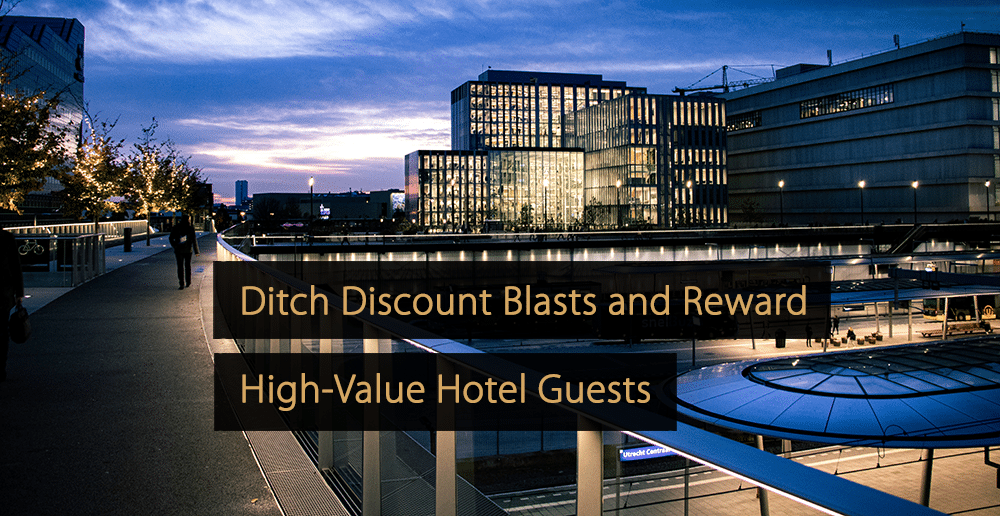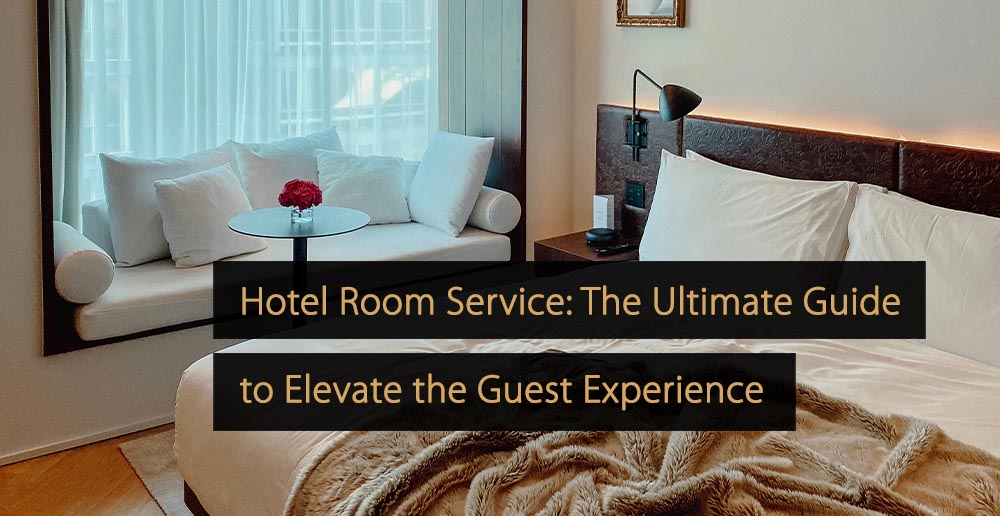Bleisure travel – the combination of business and leisure travel – is growing. This has led to heightened interest from the hotel industry, with hotels looking to appeal to bleisure travelers. In this article, you will find seven tips that can help to make accommodation more attractive to this emerging and increasingly important demographic.
Table of Contents:
- What is the Meaning of Bleisure?
- Who is the Bleisure Traveler?
- What Are the Benefits of Bleisure?
- Bleisure; a Growing Market
- 7 Tips for Hotels Looking to Attract More Bleisure Travelers
- Tips to Attract More Corporate Travelers to Your Hotel
- The Latest Business Travel Trends Business Travelers Desire
- More Tips Regarding Business Travel
What is the Meaning of Bleisure?
‘Bleisure’ is a portmanteau of the words ‘business’ and ‘leisure’; with this in mind, bleisure travel refers to combining professional business travel with personal leisure time. It will often take the form of a business traveler extending their trip, to include time for leisure activities.
In many ways, it can be seen as a compromise between business and leisure time. In some circles, a bleisure trip is also referred to as a ‘bizcation’, which is a portmanteau of “business” and “vacation”. Bleisure travel may include a business traveler bringing a travel companion not directly connected to the business.
Who is the Bleisure Traveler?
With the rise of the bleisure traveler, efforts have been made to understand who the phenomenon appeals to.
According to an article published by Forbes (1), younger workers are more likely to take bleisure trips than older ones. However, interestingly, there is not a huge generational divide here. Millennials make 38 percent of bleisure trips, with Baby Boomers and Gen Xers accounting for 31 percent each. This suggests bleisure holds universal appeal.
Regarding occupation, a study from Expedia Group (2) and Luth Research found that the most common industries for bleisure travelers were technology, healthcare, public admin/government, and manufacturing. The most common duration of a bleisure trip was two nights (42 percent), with the next most common being three nights (29 percent).
Gender is another factor to consider when analyzing who a typical bleisure traveler is. Research carried out by CWT (3) found that women engaging in business travel are slightly more likely to take bleisure trips than men are. However, this is counter-balanced by the fact that men are more likely to take business trips in the first place.
Although bleisure travel opens up the possibility of taking a travel companion, a survey by Great Hotels of the World found that 44 percent (4) of respondents said they took their bleisure trips solo. This means hotels targeting bleisure travelers must cater to solo travelers and travelers a friend or business partner may accompany.
Finally, many bleisure travelers downplay their enjoyment during their business trips. According to the National Car Rental State of Business Travel Survey (5), 46 percent of Millennials avoid telling their bosses about personal activities. In comparison, 40 percent of Gen Xers feel they should avoid telling others too.
What Are the Benefits of Bleisure?
For business travelers, bleisure trips offer several benefits, including improved morale and increased enjoyment of business trips. They also provide opportunities to save on travel expenses, as the business pays for the business travel element. This can offer the possibility of a holiday to people who are otherwise unable to take one.
Businesses can also benefit from bleisure travel, because happier employees are more productive, and the opportunity to enjoy leisure activities can mean employees who may otherwise feel unwilling to travel for the company become willing to do so. The employee pays for extending the trip and the leisure activities they participate in, so bleisure is usually no more costly. It also allows business travelers to understand better the locations they travel to.
Meanwhile, for the travel industry, the rise of bleisure opens up the possibility of business travel guests extending their stays in hotels, and subsequently spending more money over the duration of their trip.
Video: The State of Business Travel — Bleisure Benefits
Bleisure; a Growing Market
The aforementioned Forbes article also points out that 10 percent of all business trips are bleisure trips. In comparison, 16 percent of all business trip hotel bookings now include a Saturday stay, indicating the possibility of leisure time or trip extensions. Additionally, according to Statista (6), overall business travel increases yearly.
This information shows that the bleisure phenomenon is a potentially lucrative market, which is growing and likely to become a greater focus for those in the hotel industry in the months and years ahead.
7 Tips for Hotels Looking to Attract More Bleisure Travelers
For those in the hotel industry, bleisure travelers represent an exciting and rewarding new market to secure business from, which is why so many hotel managers and owners are interested in attracting as many of them as possible. Below, you will find seven specific hotel management tips to assist with this aim.
1. Hotel Technology
According to National Car Rental’s 2019 State of Business Travel Survey, 93 percent of frequent business travelers prefer brands that use technology to make travel easier. Within hotels, examples of the kind of technology that might make a difference here range from using IoT devices in hotel rooms, such as smart speakers, right the way through to using smartphone apps that allow for contactless check-ins, check-outs, and restaurant payments. For more information about hotel technology, you can read the article “Hotel Technology Trends: 11 Upcoming Innovations You Must Know”.
2. Fast, Reliable Internet in Workspaces
A bleisure tourist will need to fulfill their business travel obligations so they will want access to comfortable workspaces within the hotel, and for those workspaces to have dependable internet access. Connection speeds and the quality of your Wi-Fi can make a big difference, as business travelers may need to download and upload files or communicate using video calling. Hotels can make the most of this by offering excellent facilities and charging a small rental fee.
3. Partner With the Right Distribution Channels
Next, you need to give consideration to the distribution channels you use, and the ones that bleisure travelers are likely to use too. Working with corporate travel agents could be one way to boost the number of bleisure travelers you can attract, as these travel agents specialize in arranging business trips and planning business events for their clients. Similarly, you should consider the global distribution systems you use, where they are popular, and where the bleisure travelers you hope to appeal to are most likely to come from.
4. Improved Personalization
Personalization within hotels and resorts can hold a lot of appeal for bleisure travelers, as it often leads to processes or services becoming more efficient and precise. From intelligent recommendations, made based on customer data, to the ability to personalize hotel room conditions, such as smart heating controls, greater personalization can save time and improve comfort, allowing business travelers to get work done quickly and free up leisure time.
5. Showcase Your Business and Leisure Amenities
Another great way hotels attract bleisure travelers is to showcase business and leisure amenities. A typical bleisure tourist will certainly be interested in corporate offerings, such as private meeting areas, laptop or phone charging ports, and any 24-hour services you can offer. However, they may also be enticed by leisure amenities like spas, saunas, gyms or fitness centers, yoga areas, bars, and bicycle hire facilities.
6. Advertise Things to Do in the Area
Those in the hotel industry can also appeal to business travelers by highlighting what is on offer beyond the hotel itself, such as things to do in the nearby area. For instance, there may be major landmarks nearby or restaurants you can recommend. Perhaps you can promote museums in the area or local theatre tickets. Your location might also have stunning beaches to entice travelers, entertainment venues within easy reach, or hiking trails to explore.
7. Promote Specific Bleisure Offerings
Finally, hotels can appeal to the average bleisure traveler by promoting bleisure options. Examples may include offering business travelers a discount on extra nights to entice them to extend their trip, or offering corporate travelers specific bleisure packages, including discounts on extra nights, tours, and tickets to local attractions or events. You might also highlight bleisure possibilities on your corporate website, advertise bleisure offers in pre-stay emails, and include customer testimony from bleisure travelers on social media platforms.
Tips to Attract More Corporate Travelers to Your Hotel
Corporate travelers hold a particular appeal for many hotel owners because they are more likely to use certain hotel facilities and often return to the same location several times a year. This opens up the possibility of securing repeat business – assuming you can cater to their needs and generate loyalty.
In the article “Tips to Attract More Corporate Travelers to Your Hotel”, you will find specific examples of ways to reach out to this key demographic and increase your business travel guests.
The Latest Business Travel Trends Business Travelers Desire
The continued rise of business travel has led to increased efforts from hotel industry companies to appeal to corporate travelers and better understand their needs, wants, preferences, and behaviors.
In the article “The Latest Business Travel Trends Business Travelers Desire”, you will find out more information about the growth of business travel, along with some of the specific trends – from the sharing economy and the Internet of Things to virtual reality and healthy eating – that help to influence their travel decisions.
Hotels that can attract bleisure travelers will potentially benefit from repeat business and increased revenue from corporate facilities and services. For this reason, many hotel owners are keen to appeal to this growing business and leisure-based demographic, and the seven tips provided should assist with this.
More Tips Regarding Business Travel
The corporate travel market is receiving an increased focus from many in the travel industry, partly business travelers often spend more money on their travels, especially when their employer covers their costs. However, more importantly, business travel is growing, thanks to factors like globalization and the availability of flights. In the following articles, you will find more information about the corporate travel market:
- What You Need to Know About Corporate Travel Management
- How to Select a Good Business Travel Management Company?
- Reasons Why Companies Should Use a Business Travel Agency
- Global Distribution System (GDS): What Are the Benefits for Hotels?
More Tips to Grow Your Business
Revfine.com is the leading knowledge platform for the hospitality and travel industry. Professionals use our insights, strategies, and actionable tips to get inspired, optimize revenue, innovate processes, and improve customer experience.Explore expert advice on management, marketing, revenue management, operations, software, and technology in our dedicated Hotel, Hospitality, and Travel & Tourism categories.
Sources:
(1) Forbes, Are Bleisure Trips Becoming More Common? This Study Says Yes
(2) Expedia, Unpacking Bleisure Travellers Trends
(3) CWT, A Quantitative Look At the Bleisure Phenomenon
(4) Business Traveller, ‘Bleisure’ Trend Continuing, Survey Shows
(5) National Car Rental 2019 State of Business Travel Survey Fact Sheet
(6) Statista, Global Business Travel Industry – Statistics & Facts








Leave A Comment